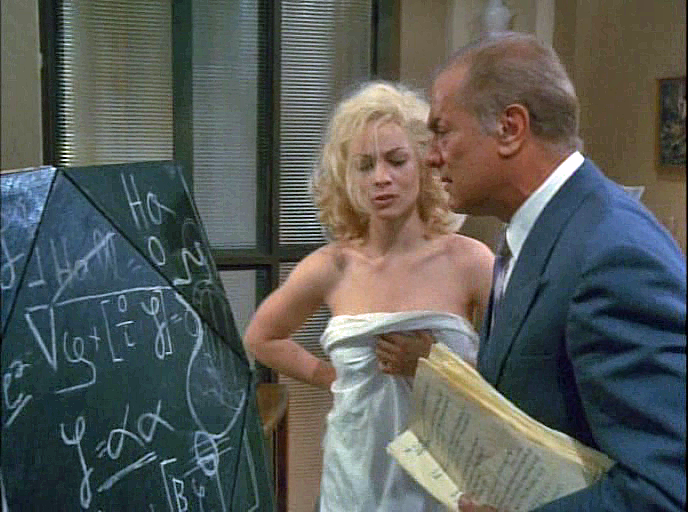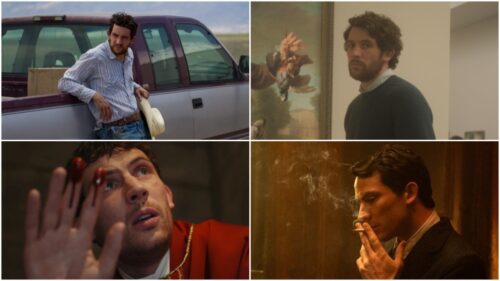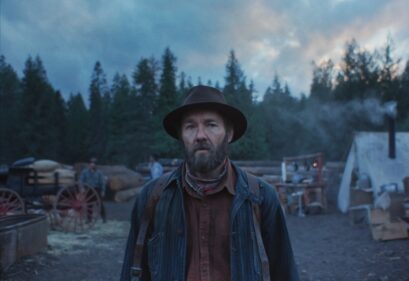Cannes, France – “How’s the Cannes Film Festival? I’ll tell you one thing, pal. It’s a whole lot better than a kick in the ass. I got my ticket paid for, I’m staying in a first-class hotel, I’m wearing expensive boa-constrictor cowboy boots, and I’m not drinking and I’m not taking drugs. How could life be better?”
Tony Curtis was in an expansive mood. He’s a naturally exuberant man, but this time he seemed happier and a little calmer than the last time I caught him at Cannes — the time he interrupted our interview to lean out the window and try to pick up a girl who was walking in front of his hotel.
“You know how hard it is to get boa-constrictor boots? One guy holds down the snake, and the other two guys pull off his boots.” Curtis is going to be 60 on his next birthday, June 6. He has made at least 140 movies. He has been a famous movie star for 38 years, and there is only one place where he wants to set the record straight.
“I never said Yonder lies dah castle of my faddah. That line has become part of the folklore. You go to see the movie, listen for yourself. What I said was, clear as day, father. See, I was born Bernie Schwartz. I’m a Hungarian Jew from Brooklyn. So they thought I had to pronounce it faddah, because it fit the stereotype. Lawrence Olivier was in the same picture, but nobody thinks he ever mispronounced anything in his whole life.”
It was a rainy Saturday at the Cannes festival, and we were sitting in a little lounge hidden off the lobby of the Carlton Hotel. A few hours ago they’d held the press screening for Curtis’s new movie, “Insignificance,” a truly odd tragicomedy by Nicholas Roeg, about a long night spent together by Marilyn Monroe, Albert Einstein, Joe DiMaggio and Sen. Joe McCarthy.
Curtis played McCarthy as a boozy charmer who kicks the hooker out of his bed so he can go deliver an ultimatum to Einstein: Talk before the Senate loyalty committee, or else. When he gets to Einstein’s hotel room, he finds Monroe in the professor’s bed, and DiMaggio pounding on the door. None of the movie’s characters are referred to by name, but there is no doubt who they’re meant to be.
Curtis, of course, co-starred with Monroe in perhaps her best movie, “Some Like It Hot.” In “Insignificance,” the blond sex symbol is played by Theresa Russell, and at the press conference after the screening, Curtis was asked if it brought back any memories when he walked on the set and saw her blond wig and white-pleated dress.
“Naw, I never was in drag in a blond wig or a white dress,” Curtis joked. “In that picture, I was a brunet.”
Later, though, he told me it did seem a little strange to be playing opposite a Marilyn figure.
“Theresa doesn’t look like Marilyn to me, but I’d catch a glimpse of her out of the corner of my eye, and it would bring back so many memories. You see, when we were making that picture, she was suffering from the same disease that I have — alcoholism and drug addiction. Only we didn’t know it. You deny you have a problem. Everybody tries to work around it.
“The director, Billy Wilder, told Jack Lemmon and me that Marilyn might go 40 takes before she got something right, but when she got it right, that would be the take he would use — so we better have our acts together, and not have our fingers up our noses.
“I remember one day, Marilyn was drinking champagne, and by 5:30 in the afternoon she couldn’t work anymore. And I saw Arthur Miller, who was then her husband, drive onto the set in a limousine and take her arm and just yank her into the car, like she was a drunk, which of course she was, except that not Miller or nobody else thought of it as a disease, and they just treated her like a drunk, and she never got the help she needed.”
But you finally did get help?
“Jeez, it took me a long time. I’m in recovery now. I’m like a pregnant woman — in the recovery room. Drugs and booze were a terrible ordeal for me for years, and I was in mid-life before I realized it. I was losing control, I was powerless over the stuff, my life was unmanageable, my personality would change in weird ways, I finally knew something was very wrong. I was unable to work. I was difficult for me to work with, forget about anybody else. I had been denying it. Monroe had the line in ‘Some Like It Hot,’ She said it to me: ‘I can quit anytime I want to, only I don’t want to.’
“As for all the publicity about how I went into Betty Ford Center, that’s the tail wagging the dog. The center isn’t the big thing. It’s admitting you got a problem, pal, and you need help. Whether it’s Betty Ford or your local AA meeting down the street, what difference does it make? Today I don’t have to hide in the closet. The only treatment for substance abuse is complete abstinence, and to talk about it, like in AA. I’m gonna be 60 soon, and I’ve learned so much, I feel like I spent 59 years of my life between my 59th and 60th birthdays.
Curtis said he went to Hungary right before he came to Cannes, to visit the village where his father was born.
“I wanted to look on the same hills his eyes looked on. I’m trying to figure out this thing called life. I’m trying to understand what happened to me. Let me tell you a story, sort of a parable. One day in 1948 I went to Hollywood. My name was Bernie Schwartz. I signed a contract at Universal, and I bought a house in the hills. It had a swimming pool. Unheated, but it had water in it. One night I came home late, I jumped in the pool, I swam a few laps, I got out, I dried myself off, I put on my clothes, and I walked directly into this room and sat down and started to talk to you. Do you see what I’m saying? Thirty-eight years, I don’t know where they went. Gone like that.”
He shook his head, slowly. “Yesterday, I jumped in that pool,” he said. “Jeez, the water was cold.”












